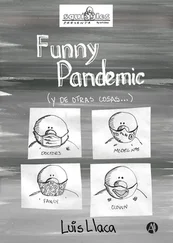‘Tiger Two, good kill. Tigers, terminate, terminate,’ the Sea King bagman called. ‘Pigeons for Mother three five zero at sixty-two. Listen out for Snakes this frequency.’
‘Alpha Sierra, roger. Break, break. Tiger Two, Leader. Roll out north at thirty.’
Richter clicked his transmit button to acknowledge, then steadied the Harrier on north, continued the climb and levelled at thirty thousand feet. He scanned his radar, checking for both Tiger One and the other two Harriers. As soon as he identified the Senior Pilot’s aircraft, he took up station in battle formation again.
‘Tiger Two, Snake One.’
‘Tiger Two.’
‘Beginner’s luck, I’d call it, Spook.’
Richter grinned behind his oxygen mask. ‘You know my motto, Randy,’ he replied. ‘Any time, anywhere.’
‘Yeah, right.’
Richter glanced out to starboard, where Snake One had just appeared at his level. The other pilot waggled his Harrier’s wings in salute, then moved slightly ahead. Beyond Snake One, Richter could see Snake Two taking up station.
Richter checked the fuel state and his aircraft position on the NAVHARS inertial navigation system. The time was just about right, and he was in pretty much the right place. He made a final visual check that he was in clear air, pulled back on the control column – the classic ‘convert excess speed to height’ manoeuvre when presented with any kind of an emergency – and simultaneously throttled back so that the other three Harriers shot ahead of him. Then he took a deep breath and transmitted.
‘Pan, pan, pan. This is Tiger Two with a rough-running engine. Request diversion to the nearest shore station.’
Between Gavdopoúla and Gávdos, Eastern Mediterranean
Spiros Aristides had spent his entire working life as a professional diver, primarily in the Aegean, and in retirement he still enjoyed – albeit outside the law – what had once been his livelihood. Scuba diving in Crete is technically illegal, unless the diver holds a permit from the Department of Antiquities, but Spiros had never been particularly concerned about the legality or otherwise of what he was doing. He always carried his diving gear in a couple of sacks, just in case there were any prying eyes trying to monitor his activities, but in the eight years he’d been living on Crete he’d never so much as caught a glimpse of a policeman in the village where he resided, let alone a man from the ministry.
Most weekdays he left his small house in Kandíra on the south-west coast, packed his equipment into his eighteen-foot workboat and headed off into the Mediterranean. Not much to look at, with faded blue and red paintwork and a bunch of old car tyres acting as fenders, the Nicos was nevertheless a well-equipped diving tender, fitted with a Gardner diesel engine, radar set, echo-sounder and even a Global Positioning System unit.
Spiros had been given the last piece of equipment by one of his many nephews as a birthday present, which was the only reason it was still attached to the bulkhead in the tiny wheelhouse. He had never used it, and he never would. He knew the waters around Crete the way a gardener knows his lawn, and almost never even glanced at a chart. To have utilized the small digital display of the GPS would have been, for Spiros, an admission of defeat.
Although Crete is one of the most visited holiday islands in the Mediterranean, attracting more than two million tourists every year, it has never been particularly popular with devotees of recreational diving. Quite apart from the prospect of a fine of up to one hundred and fifty thousand pounds if caught diving without a permit, the island of Crete is the top of a submerged mountain and, although there are excellent bathing beaches, around most of its coast the seabed slopes rapidly away, plunging precipitously to depths of hundreds of feet.
If Crete isn’t a popular diving destination, the islands of Gavdopoúla and Gávdos are even less so. The only above-surface projections of another seamount lying some twenty miles to the south of Crete, the islands are tiny – Gávdos is the biggest at about five miles long by three wide – and, as with Crete itself, the seabed slopes rapidly to depths in excess of a thousand feet. Gávdos has a population of around fifty, while Gavdopoúla is unoccupied apart from a bunch of goats.
But between Gavdopoúla and Gávdos lies a saddle, a section of seabed that almost joins the two islands and lies at an average depth of only one hundred feet below the surface of the Mediterranean. And it was there that Aristides had found the wreckage.
When he first spotted the case, he didn’t realize what it was. Caught in the powerful beam of the underwater torch, the object swayed slightly, almost imperceptibly, from side to side. A bulky, squared shape festooned with brown and green marine growth, it rocked very gently with the slight current. But it caught his attention because of where it was, rather than what it was.
Visibility underwater in the Mediterranean is usually good, but at a depth of eighty-five feet the light is grey and weak, and Spiros Aristides could see clearly only what his torch beam illuminated. And what it illuminated puzzled him. He lowered the beam and again played it around what was left of the aircraft’s cabin.
Aristides knew little about aircraft but even he could recognize an executive jet when he saw one. Or what once had been an executive jet.
After he’d discovered the seat the previous afternoon, he’d guessed that there was more to find, but it had taken him all of three dives to locate the remains of the cabin. The section of wing, torn away from the fuselage, had been easy, one end embedded in the sand, the other pointing up towards the surface in mute entreaty. He’d found bits of unidentifiable twisted metal, and a long and heavy chunk of corroded steel and aluminium that he’d guessed was an engine, but it wasn’t until he looked among the rocks fifty metres to the south of where the wing lay that he’d found the cabin. And even then he’d nearly missed it.
Covered in marine growth, it had looked pretty much like another rock, until Aristides’s trained eyes had spotted the three more or less regular shapes of what had once been windows along one side of it.
Aristides had checked his chronometer before doing anything else, and realized any exploration of the wreckage would have to wait. He’d looped a rope through two adjacent holes in the fuselage and secured it with a loose knot, then tied the other end to one of his lifting bags. He’d partially filled the bag, using expelled air from his aqualung, enough to give it sufficient buoyancy to hang in the water some twenty feet above the wreck. That had acted as a marker on this, his next dive.
The front of the fuselage had been ripped off, leaving a wide opening through which Aristides now peered. Bubbles from his exhaled breath foamed and swirled above his head, forming an irregular silvery mass in the centre of the cabin roof. There had once been six seats in the passenger compartment, but only five were still secured to its buckled floor. The sixth lay about two hundred metres away, tipped on its side on the seabed some ninety feet below the surface. That same seat, and its grisly occupant, was what Aristides had found first.
Three shrunken, skeletal shapes peered impassively back at him from the seats they had now occupied for over thirty years. He rested the beam of his torch on them, one at a time. Their clothing had largely vanished, as had their flesh and the fabric of the seats they rested in. The two bodies closest to him had slumped down, but a third, towards the rear of the cabin, still sat unnaturally upright.
Aristides crossed himself, then eased forward gently into the cabin, careful to avoid touching either of the first two bodies, until he could see the third one clearly. Then the reason for the corpse’s unnatural stance immediately became clear. A shard of metal, probably aluminium and apparently ripped from the fuselage of the aircraft itself, had speared through the back of the seat and was still lodged between two vertebrae of the corpse’s neck.
Читать дальше












